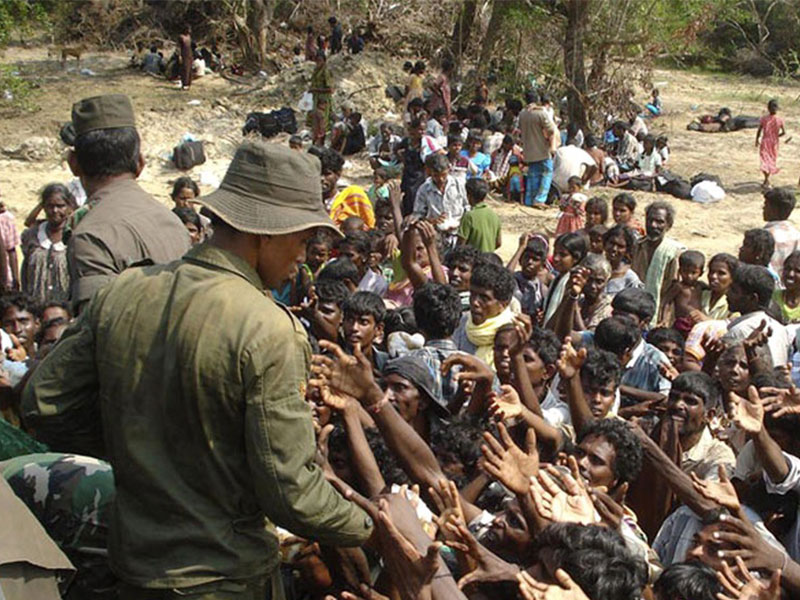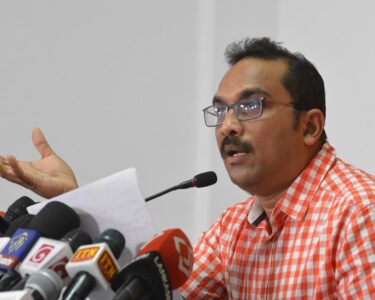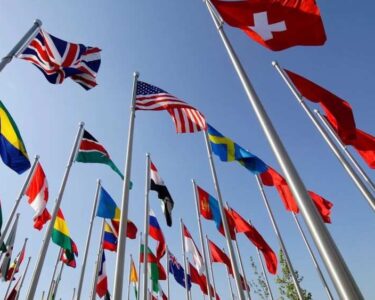2024 looms large for Sri Lanka, not just as a new year on the calendar but as a potential turning point in its long and fraught journey towards accountability for the brutal civil war that ended in 2009. The international spotlight will be firmly on the island nation as the Sri Lanka Accountability Project (SLAP), a crucial initiative in the quest for justice, faces a critical juncture.
For decades, the wounds of the war, particularly the estimated 16,000–60,000 enforced disappearances primarily affecting the Tamil minority, have festered under successive Sri Lankan governments that failed to deliver on postwar justice. This vacuum of accountability paved the way for international efforts like SLAP, endorsed by the UN Human Rights Council, to gather evidence of alleged war crimes for potential future prosecutions.
SLAP’s significance lies in its meticulous approach. Unlike past reports that documented war crimes, it meticulously gathers testimonies and information from victims and human rights groups, ensuring admissibility in a court of law. This painstaking process has raised hopes for finally breaking the cycle of impunity that has shielded alleged perpetrators.
Sri Lanka’s Commitment:
The year 2024 will see this delicate work put to the test. In March, the UN Human Rights Council sessions will be a crucible for SLAP. Colombo, which has consistently opposed the project as “intrusive,” will have the opportunity to challenge its progress and legitimacy. The Council’s assessment will not only determine SLAP’s future but also send a powerful message about Sri Lanka’s commitment to accountability.
The year 2024 will see this delicate work put to the test. In March, the UN Human Rights Council sessions will be a crucible for SLAP. Colombo, which has consistently opposed the project as “intrusive,” will have the opportunity to challenge its progress and legitimacy. The Council’s assessment will not only determine SLAP’s future but also send a powerful message about Sri Lanka’s commitment to accountability.
The potential consequences of a robust SLAP are significant. Western governments, armed with its findings, may utilize universal jurisdiction to target suspected war criminals. Some high-profile figures already face sanctions from countries like the US, setting a precedent for further action.
For survivors like botanist Jayasingam, who witnessed the chilling disappearances of 158 Tamil men and boys from a refugee camp, 2024 represents a glimmer of hope after years of agonizing silence. Human rights activists, too, see SLAP as a vital tool to keep the pressure on Sri Lanka and push for genuine accountability at the UNHRC.
Formidable obstacles:
However, the road ahead remains challenging. The Sri Lankan government’s resistance to SLAP and the complexities of international legal processes present formidable obstacles. Yet, the sheer weight of unresolved disappearances, the meticulous work of SLAP, and the unwavering voices of survivors demanding justice all converge to make 2024 a potentially defining year for Sri Lanka. Whether it marks a genuine turning point towards accountability or another chapter in the saga of impunity remains to be seen. The world will be watching with bated breath.
Formidable obstacles:
However, the road ahead remains challenging. The Sri Lankan government’s resistance to SLAP and the complexities of international legal processes present formidable obstacles. Yet, the sheer weight of unresolved disappearances, the meticulous work of SLAP, and the unwavering voices of survivors demanding justice all converge to make 2024 a potentially defining year for Sri Lanka. Whether it marks a genuine turning point towards accountability or another chapter in the saga of impunity remains to be seen. The world will be watching with bated breath.







